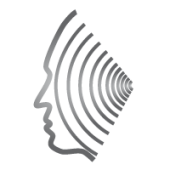Tooth grinding has probably been around as long as mankind and is contrary to popular belief something that likely everybody does to a greater or lesser degree. Tooth clenching is a close relative to grinding and together these activities are referred to as bruxism or sleep bruxism as the majority of these take place in our sleep although tooth clenching is in some a common daytime activity. Few will grind their teeth during the day, but this is associated with certain medical situations and the taking of certain medications.

Neither activity appears to have any purpose or reason although clenching of the teeth may serve as a way of bracing the jaw or body for a collision or if under attack, hence many will be aware of clenching during sporting activities and perhaps to a lesser extent when concentrating.
Tooth grinding should not be seen as a cause for concern particularly in regard to the widely held belief that it is commonly viewed as a sign of stress, which is not true. Studies do show however that we will tend to clench more during periods of stress. It is possible that the increased level of grinding of a stressful period is sufficient to induce a problem in someone with a jaw problem that they had been hitherto unaware of.
It is important to realise that in most instances jaw problems are gradually progressive with sufferers not having any awareness of a problem in the early stages until the problem has developed sufficiently to cause pain or a mechanical problem such as jaw locking.
Tooth grinding in itself probably does not cause jaw problems although it may be a contributor along with many other less clearly understood factors. In fact most really severe grinders do not have jaw problems! This is possibly because they have evolved with stronger jaw joint structure than the average person. Others may have an inherently weakened jaw structure just as some people may have a “problem” knee or back without ever having had a specific injury in either case. Having said this it is strictly speaking not true that jaw problems are hereditary with most not having a family history of jaw problems as would be the case in families in regard to other joint problems.
Having stated that tooth grinding is not a causative factor in jaw problems, it would be reasonable to state that for this reason there is certainly no reason to suggest that more that average grinders should wear a protective plate or bite guard during sleep to prevent possible development of jaw problems. However grinding in many is at a level which will lead to tooth damage and in these instances the wearing of a bite guard will certainly prevent this. Dentists for this reason may suggest that more severe grinders wear a bite guard at night. For convenience these may be made of a flexible material not unlike a gum shield as worn in contact sports. Ideally a hard plastic or acrylic bite guard should be provided as this will, if correctly made, be more durable and long lasing.
